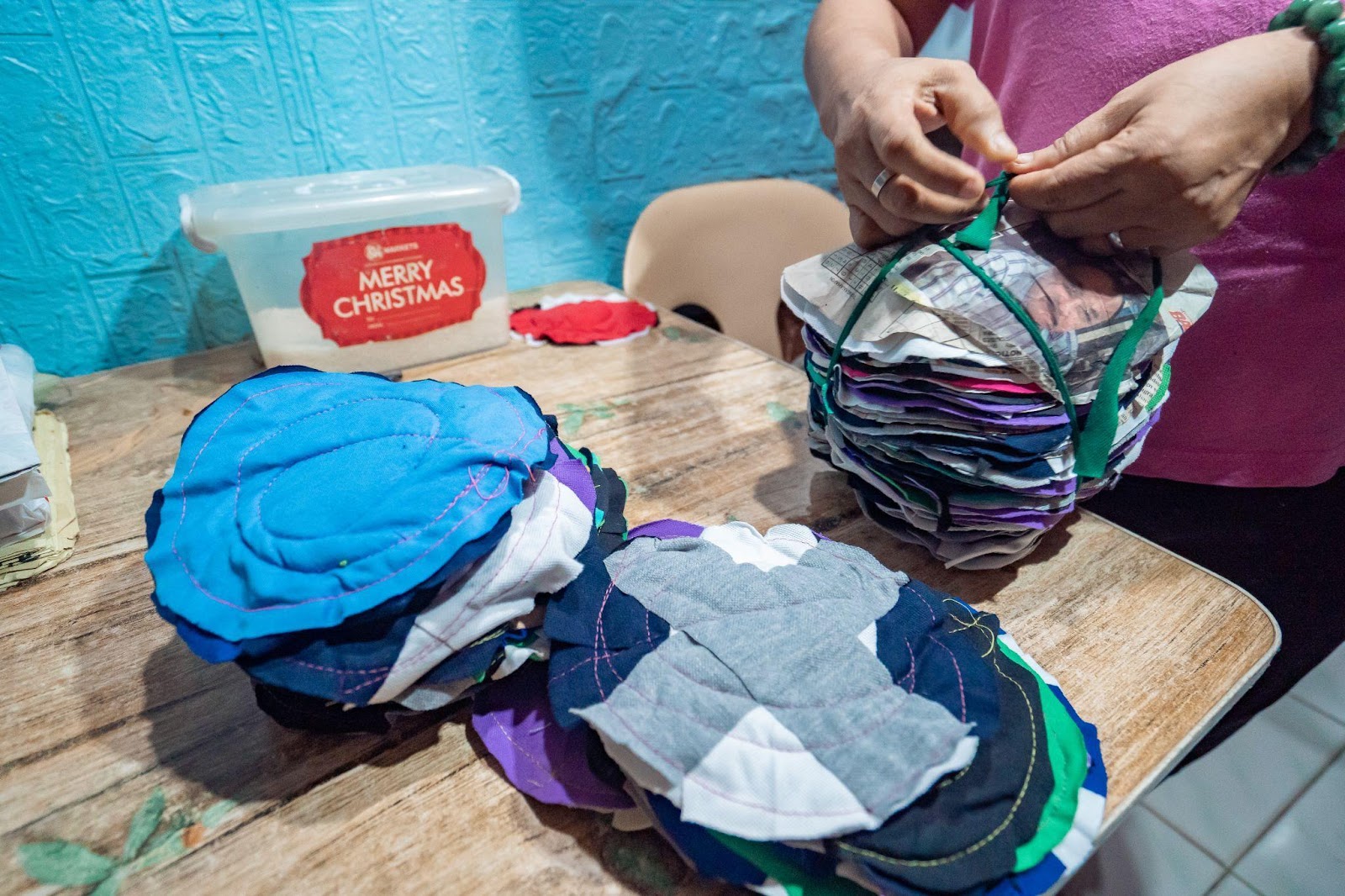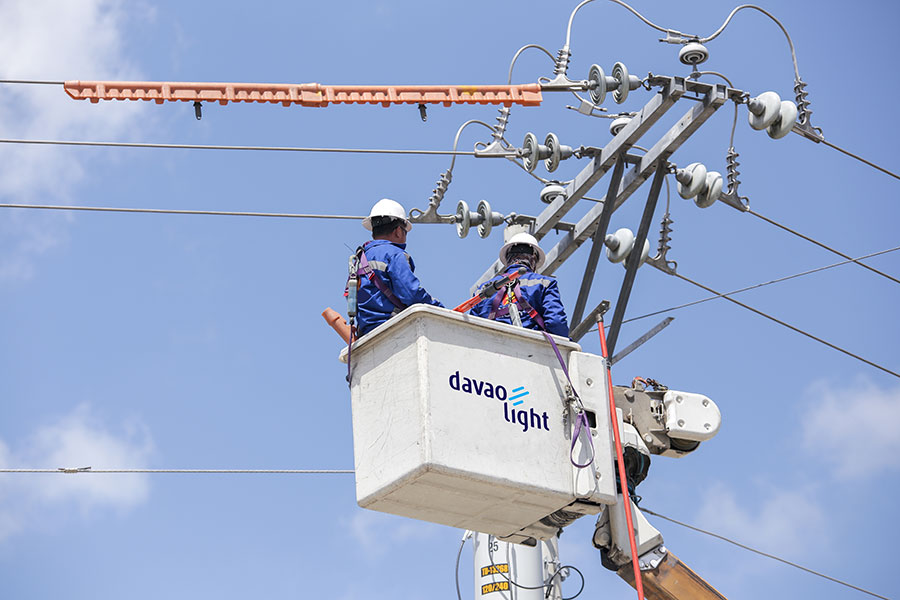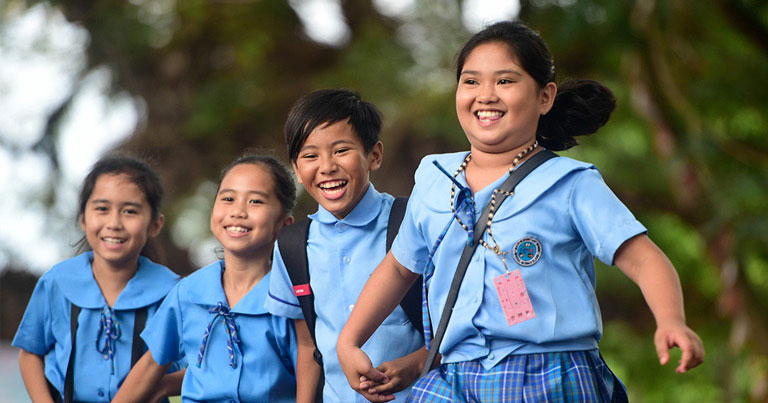Cebu native Melodee Hermosa of Sitio Bato, Barangay Ermita considers a sewing machine she received from Cebu Private Power Corporation (CCPC) as her most valuable belonging.
Melodee, 49, said the sewing machine is very important to her and her family because she uses it to earn a living.
“Kapila na mi nasunogan sa Bato. Ang makina gyud ang unahon nako og alsa kay mao ni nga makakwarta ko (We have been hit by fire many times in Bato, and the first thing that I will save would be the sewing machine because it enables my livelihood),” she said.
Melodee was among ten mothers from their poor community who were selected for the PATCH rag-making program of electricity generator CCPC and non-governmental organization Children of Asia. Each of them were given a sewing machine and 'retaso' (scrap fabric) that they could use to create rags and other products for selling.
According to CCPC, the project was launched in 2019 to provide beneficiaries with an alternative livelihood. Through PATCH, they are able to earn additional income and help support their families through decent work while using skills that could easily be learned. Furthermore, the project allows them to become productive while still being able to attend to their domestic responsibilities as the job of sewing provides a flexible work schedule.
Turning scrap fabric to rags
Melodee said their training commenced in October 2019 and they started to produce rags in January the following year.
For a period of twelve months CCPC bought all of their produced rags for use at their corporate office in Barangay Ermita.
Each of the 10 program beneficiaries were asked to produce at least 20 kilos of rags per month which they would sell at P45 per kilo.
Melodee explained that she and one of her neighbors, Maria Micel Perez, another program beneficiary, shifted to the production of washable face masks in 2021 after their contract with CCPC ended. This was because travel restrictions caused by the COVID-19 pandemic made it difficult to source cloth that they could use to manufacture rags.
Today, they continue to sell their washable face masks to neighbors and some vendors at the nearby Carbon Public Market.
Additional Income
Melodee said she also learned and started doing alterations or repair of garments and sewing bedsheets and pillow cases for some of her neighbors to earn extra income.
She would charge P30 to P50 for minor repairs and the amount could go up depending on the type of work that was required.
“Daku gyud kaayo og natabang ang akong pagpanahi kay naa gyud koy makagasto labi kun ma delay ang sweldo sa akong bana (Sewing has really helped me a lot especially when the salary of my husband would be delayed),” she said.
Melodee would use the income she earned from sewing to augment the meager wage that her husband would earn from working as a security guard.
“Maayo kaayo ni para nako kay makaatiman kos akong mga anak unya makapanahi pa ko (This is advantageous to me because I can take care of my children and sew almost at the same time),” she shared.
Melodee recalled that there was an instance during the pandemic when she started to be depressed. She and her kids had to stay home due to the lockdown, separated from her spouse who reported for work. They also suffered financial difficulties.
Then came the blessing from Children of Asia and CCPC, giving her a new sense of purpose.
“Nanahi na lang ko (I just went into sewing),” Melodee simply said.
From farmer to rag maker
In Barangay Tangke, Naga City, at least thirty members of the Tangke Farmers Association also received three high speed sewing machines from generation company Therma Power Visayas, Inc. (TPVI), a subsidiary of Aboitiz Power Corporation (AboitizPower).
The machines were placed at the basement of the barangay's multi-purpose hall together with the 'retaso' that came with the donation they received in May last year.
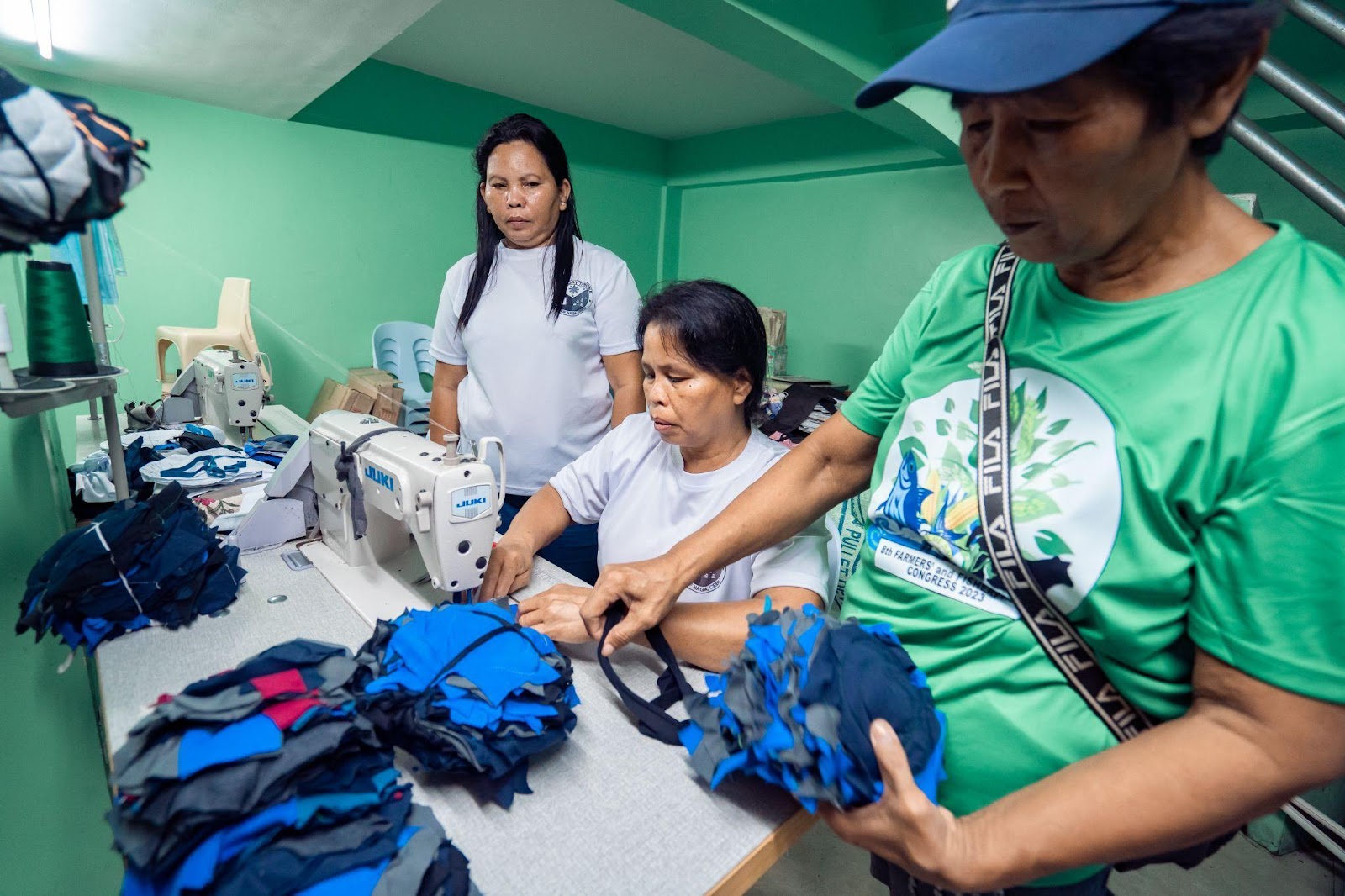
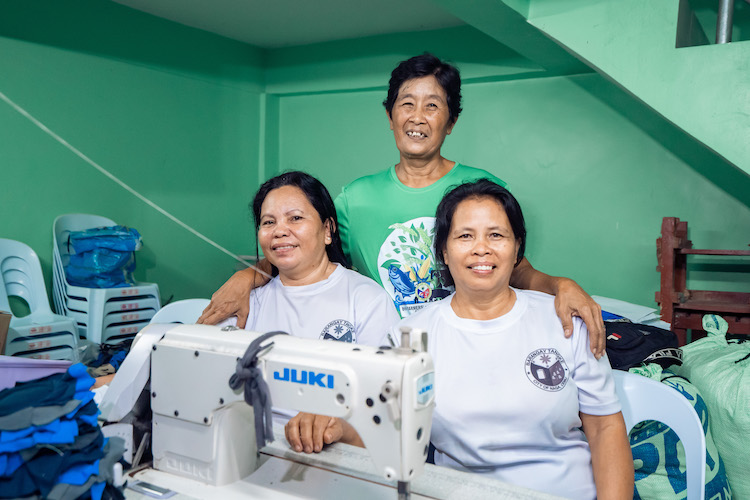
TPVI was also its first customer, making an order of 100 kilos worth of rags in August 2022, said Cecilia Amores, the association's president.
According to Barangay Captain Neil Bartolabac, most of the Tangke residents used to rely on farming for their livelihood. They planted tobacco, corn, and kamote tops, among others.
But most of their farmlands are now occupied by industries, making residents shift to urban gardening to recoup the produce of vegetables that they personally consume.
The local government of Naga supported the farmers' initiative by providing them with seedlings while the barangay provided the space where they could plant.
With the donation of the rag-making starter kits from TPVI, local resident Ceria Labang said they were given an opportunity to earn additional income while staying close to their respective families and gardens.
Ceria, 57, said that association members, most of whom are mothers, would gather at their work area at around 8 a.m. after they send their children to school.
They would then start sewing rags.
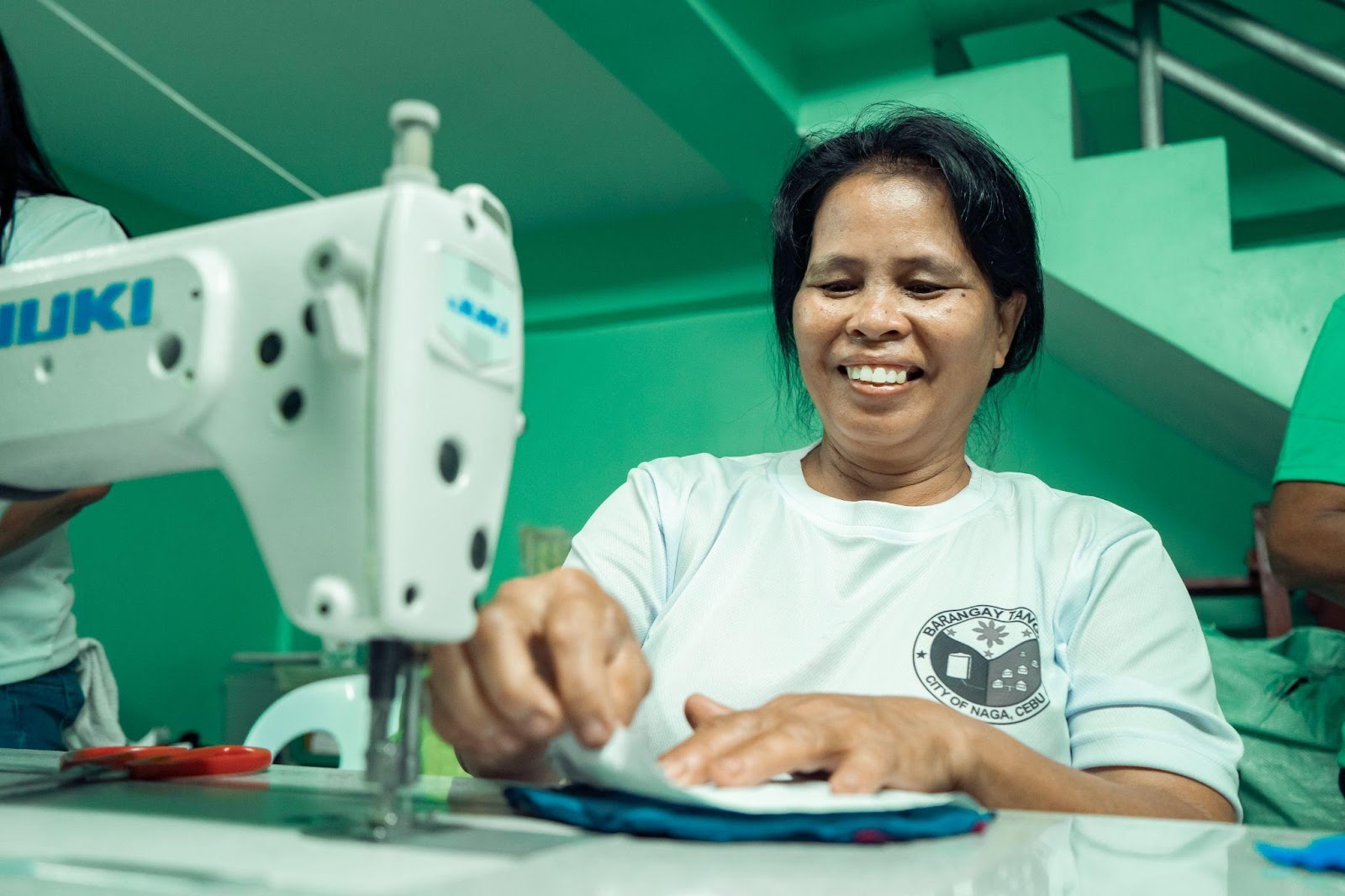
Ceria, who is also a mother of six and a former banana and corn farmer, said that she was able to produce at least 10 kilos of rags per day which they would sell at P50 per kilo.
From their earnings, they set aside P30 for the purchase of additional 'retaso' while P7 goes to their association. Workers take home P13 per kilo of rag that they produce.
Rag-making program beneficiaries like Melodee, Maria, Cecilia, and Ceria said they will forever be grateful for the assistance and the livelihood they received from CCPC and TPVI.
The two firms came to their rescue at a time when the future was uncertain due to the financial difficulties brought about by the COVID-19 pandemic.
They said that the knowledge and opportunities that they acquired from the rag-making program gave them hope and the assurance that their families will be taken care of. The best part is that they get to keep the livelihood kits that they received from CCPC and TPVI so they would continue to earn.
This article was written by Doris C. Bongcac for Cebu Daily News.
